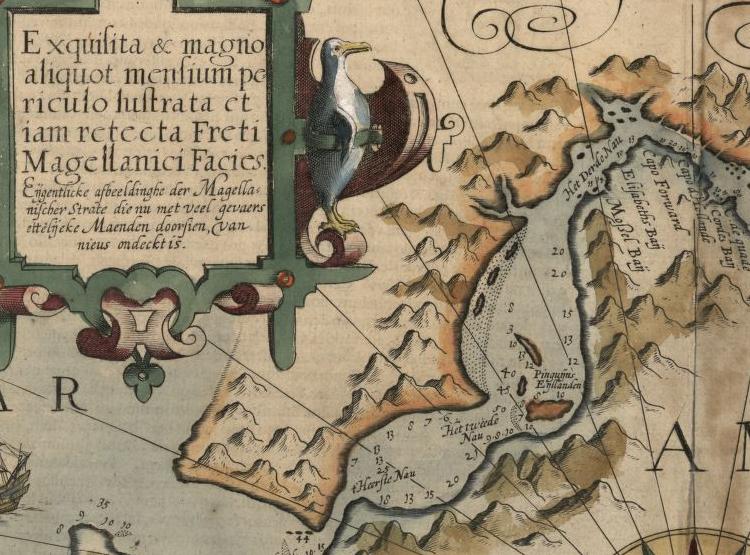Could anyone help me understand the meaning of the Latin in this Jodocus Hondius map from the early 1600s?
Exquisita & magno aliquot mensium periculo lustrata et iam retecta Freti Magellanici Facies.
I know very little Latin but have managed to figure out via Google Translate that "Freti Magellanici" is the Strait of Magellan (which is what this map is), but the rest of it is unclear, something about "exquisite and great danger for several months examined and already unveiled" which doesn't quite make sense.
for what it's worth: from looking at C.M. Weimer's answer, the Dutch that follows may be the same text in both languages:
Eijgentlicke afbeeldinghe der Magellanisher Strate die nu met veel gevaers ettelijeke Maenden doorsien, van nieus ondecktis
which I'm not sure about either, except that "Eijgentlicke afbeeldinghe der Magellanisher Strate" means something like "authentic image of the Strait of Magellan". "Maanden" (not Maenden) in modern Dutch is "months", "gevaarlijk" (not gevaers) is "dangerous", "ettelijke" is several/some, and "ondeckt" is "discovered"... "nu" is "now", "met" is with, "veel" is "many", "nieuw" is new/recent, but I can't figure out what "doorsien" is, so a literal translation would be something like
Authentic image of the Strait of Magellan, that now with many dangerous several months ???, from recent discoveries.
Ooh: here we go, I found something about doorsien:
Doorsien is a Dutch word that literally means "plunge through." Dutch painters were particularly interested in views into the distance, which they called doorsien
so I can get it to something like:
Authentic image of the Strait of Magellan, that now with many dangerous several months of observation, from recent discoveries.
